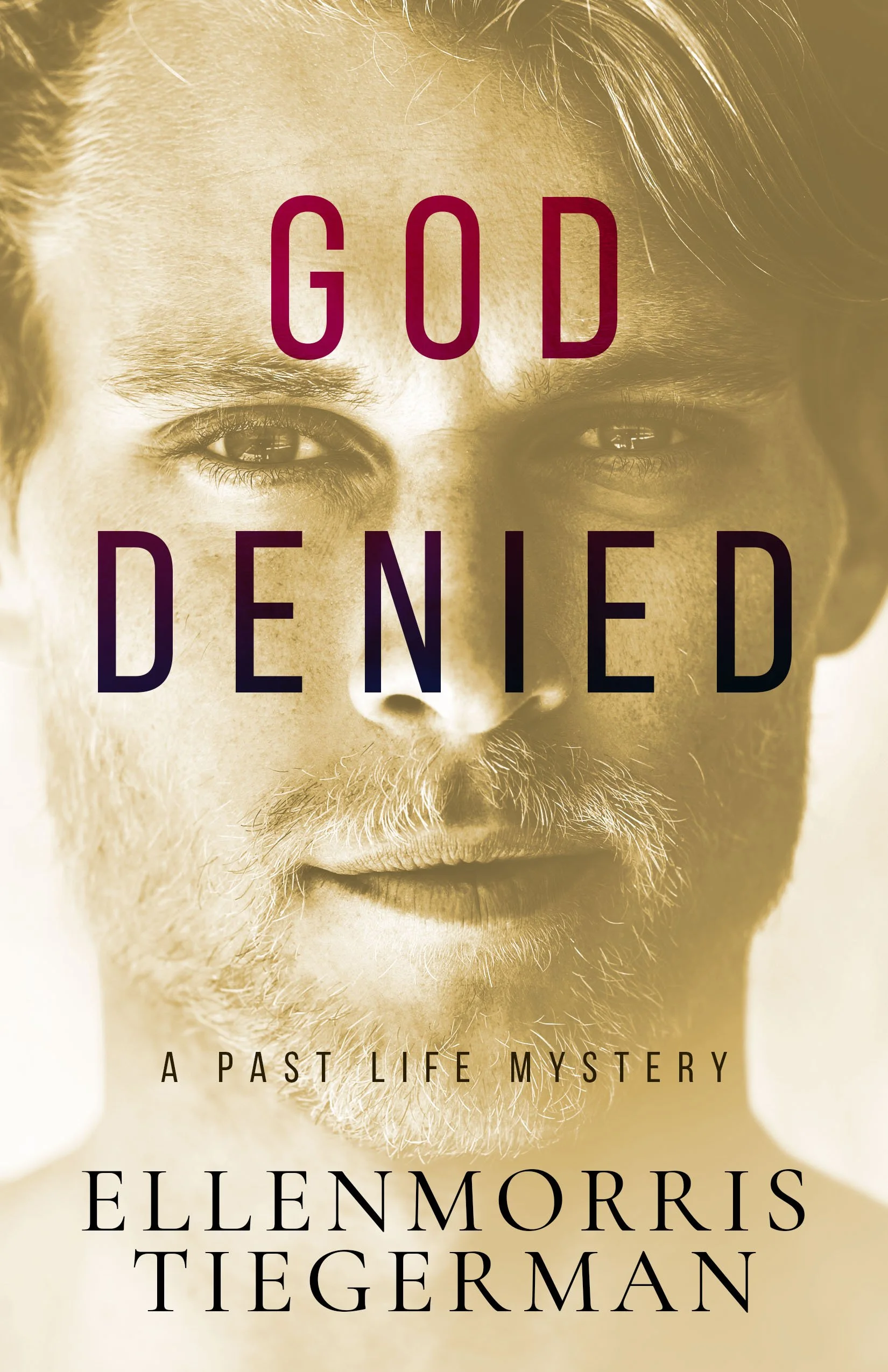"The way Tiegerman uses past-and-present worlds along the way is a true original." -BestThrillers.com
"Hard to put down, impossible to predict, and perfect for book clubs." -Midwest Book Review
God Denied
In a novel of startling relevancy, with the recent assassination of right-wing political activist Charlie Kirk, Dr. Ellenmorris Tiegerman has written the second of her past life mysteries with God Denied.
by Ellenmorris Tiegerman
When a conservative news commentator is murdered on the eve of his controversial campus appearance, Professor Ashford Connor finds himself at the center of a storm over free speech, moral responsibility, and truth. As tensions rise, Connor begins to suspect that the roots of the conflict stretch far deeper - perhaps even into another lifetime, when he and others were members of the resistance in Nazi Germany.
Blending the political and the spiritual, God Denied asks: Are we destined to repeat our past mistakes, or can we finally awaken to something greater?
A Note From The Author
It might help readers to understand important things about Past Lives Denied series if I provide some insights about myself and my history.
I was a Professor at Adelphi University in Garden City, New York for over twenty-two years in the Departments of Communication Disorders and Psychology. The experiences of the main character, Caitlyn Morrys are based on my own, having taught, worked with students at the undergraduate and graduate levels, and served on the University’s Personnel Committee. It was both an exciting and tumultuous time in the University’s history. There were, to say the least, academic and political challenges that could have undermined the core of academic principles cherished and guarded in universities across the country. It is not surprising, therefore, that Caitlyn Morrys faces similar challenges as she battles a growing awareness of her past lives and the realities of a present-day murder.
As I indicate in the Acknowledgement section, my husband, Joseph Farber, is the “brainchild” of the story line for Past Lives Denied. The two of us developed a creative outline, but completion of a manuscript stalled for several years. It was not until I took a course with Dr. Brian Weiss at the Omni Center in Rhinebeck, New York, that the book became a reality and Caitlyn developed into not only a character but a real person. My personal experiences during the training seminar were pivotal in bringing the book and its story line together. Although the backdrop for Past Lives Denied is my academic experience, the theme of the text is Caitlyn’s personal discovery and process of investigation and resolution of the homicide.
Dr. Weiss has written extensively about his hypothesis that “souls travel in groups” from one life to the next. The process focuses on an eternal growth experience that contributes to self- enlightenment. The question this book poses is pragmatic: Can investigation of past-life experiences help resolve present-day problems, in this case, a murder? It would present both a tool to therapists and clinicians and an opportunity for law enforcement investigators. To readers who wish to explore or are exploring past-life regression, the question I pose is: How real is the real in past-life inquiry? How can it be used more pragmatically to enhance the lives of today’s “travelers?” I would like to hear from readers about their thoughts and experiences on this issue, particularly if they have had relevant past-life experiences.
And finally, for readers who love a good mystery novel, don’t think that universities are “sleepy quiet” places. American universities are hotbeds of political intrigue with student activism and out of control riots. After twenty-two years at a university, the most insightful comment a colleague made to me by was: “There’s no sex or money here, only pure power.” I would like to hear about your thoughts about how in today’s climate, universities present intriguing opportunities for murder mysteries. After all, with all those brainy types on campus, the murder mysteries can only become more creative.
— Ellenmorris Tiegerman, Ph.D.

